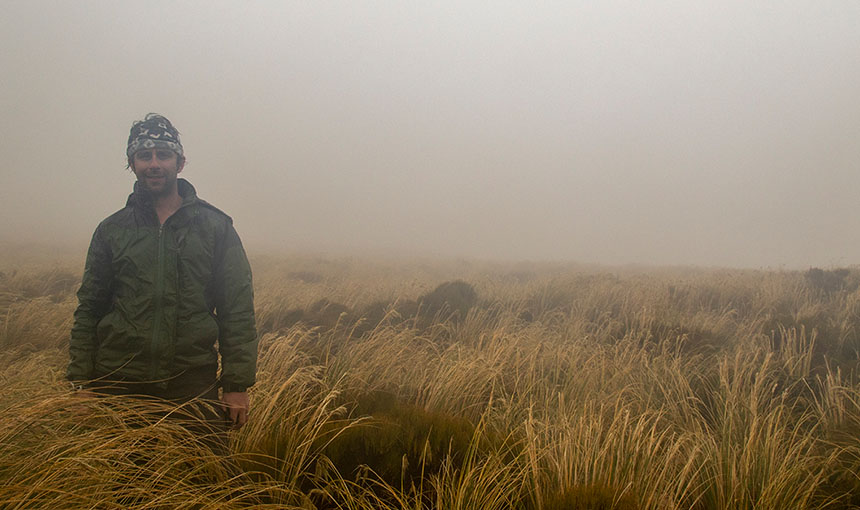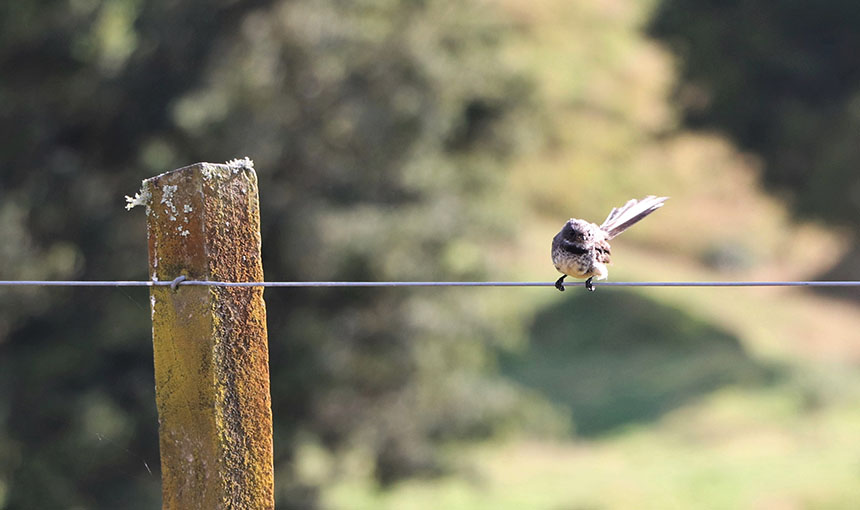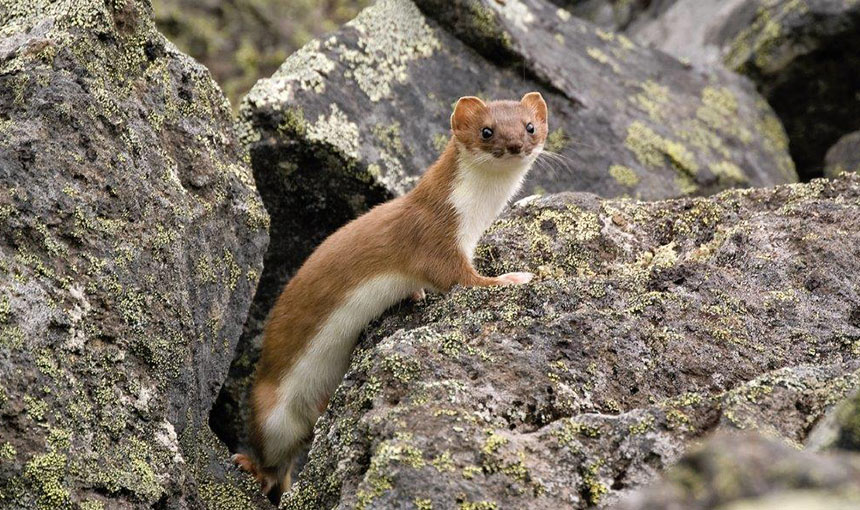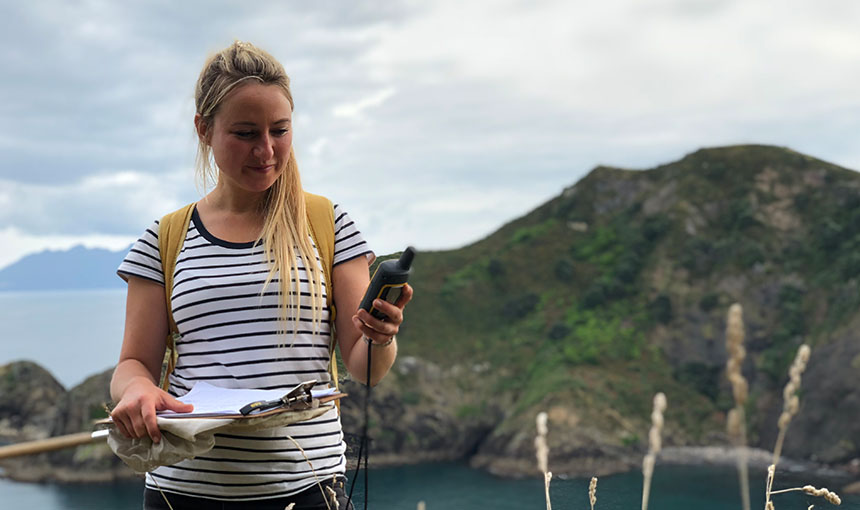High-Tech Solutions To Invasive Mammal Pests
This research team is helping to develop targeted, next-generation, socially acceptable and cost-effective new technologies to achieve landscape-scale freedom from rats, stoats and possums.

The ability to cost-effectively keep these pests that threaten our biodiversity at zero density will be transformational for Aotearoa New Zealand conservation. This BioHeritage Challenge project, led by Associate Professor James Russell of the University of Auckland, supports the scaling up of current efforts to eradicate pests by accelerating the provision of improved tools, methodologies and strategies for mammal pest control.
Read this project’s Predator Free New Zealand Bioethics Report, released May 2019
There is a formal national collaboration between this project, Predator Free 2050 and Genomics Aotearoa, with a research focus on the population genomics of New Zealand rats and science strategy for a Predator Free New Zealand.
These collaborations are helping the project team to complete a comprehensive report on the status of new pest control tools that are close to market in New Zealand. The report will facilitate stakeholder engagement, encourage early adoption and leverage private sector investment.
A bioethics panel is being facilitated as part of the project, with the cross-section of representatives working on an independent report on the social, cultural and ethical issues relating to a predator free New Zealand. The report will incorporate Māori perspectives towards modern pest control initiatives.
Articles about this research have been published in high-impact publications such as TREE and PLOS Biology, and the project will also feature in a NetFlix documentary due to be screened mid-2019.
The project contributes to the BioHeritage Challenge’s goal of creating a world-class biosecurity system for Aotearoa.
Publications
Garvey, P. M., A. S. Glen, M. N. Clout, S. V. Wyse, M. Nichols, and R. P. Pech. 2017. Exploiting interspecific olfactory communication to monitor predators, Ecological Applications, 27: 389-402. https://doi.org/10.1002/eap.1483
Gemmell, N. J., and D. M. Tompkins. 2017. Gene drives and rodent control: response to Piaggio et al, Trends in Ecology & Evolution, 32: 314-15. https://doi.org/10.1016/j.tree.2017.03.005
Glen, A. S., M. C. Latham, D. Anderson, C. Leckie, R. Niemiec, R. P. Pech, and A. E. Byrom. 2017. Landholder participation in regional-scale control of invasive predators: an adaptable landscape model, Biological Invasions, 19: 329-38. https://doi.org/10.1007/s10530-016-1282-3
Kopf, R. K., D. G. Nimmo, P. Humphries, L. J. Baumgartner, M. Bode, N. R. Bond, A. E. Byrom, J. Cucherousset, R. P. Keller, A. J. King, H. M. McGinness, P. B. Moyle, and J. D. Olden. 2017. Confronting the risks of large-scale invasive species control, Nature Ecology & Amp; Evolution, 1: 0172. https://doi.org/10.1038/s41559-017-0172
Latham, A. D. M., B. Warburton, A. E. Byrom, and R. P. Pech. 2017. The ecology and management of mammal invasions in forests, Biological Invasions, 19: 3121-39. https://doi.org/10.1007/s10530-017-1421-5
Parkes, J. P., A. E. Byrom, and K. A. Edge. 2017. Eradicating mammals on New Zealand island reserves: what is left to do? New Zealand Journal of Ecology, 41: 263-70. https://doi.org/10.20417/nzjecol.41.25
Parkes, J. P., G. Nugent, D. M. Forsyth, A. E. Byrom, R. P. Pech, B. Warburton, and D. Choquenot. 2017. Past, present and two potential futures for managing New Zealand’s mammalian pests, New Zealand Journal of Ecology, 41: 151-61. https://doi.org/10.20417/nzjecol.41.1
Rouco, C., R. De Torre-Ceijas, D. Martin-Collado, and A. E. Byrom. 2017. New Zealand shouldn't ignore feral cats, Bioscience, 67: 685-85. https://doi.org/10.1093/biosci/bix068
Russell, J. C., and T.M. Blackburn. 2017 The rise of invasive species denialism. Trends in Ecology and Evolution, 32 (1), 3-6 http://dx.doi.org/10.1016/j.tree.2016.10.012
Russell, J. C., and T. M. Blackburn. 2017. Invasive alien species: denialism, disagreement, definitions, and dialogue, Trends in Ecology & Evolution, 32: 312-14. https://doi.org/10.1016/j.tree.2017.02.005
Russell, J. C., and M.C. Stanley. 2018. An overview of introduced predator management in inhabited landscapes. Pacific Conservation Biology. , -. http://dx.doi.org/10.1071/PC18013
Parke EC, Russell, JC. Ethical responsibilities in invasion biology. 2018 The Ecological Citizen 2(1): epub-013. http://www.ecologicalcitizen.net/article.php?t=ethical-responsibilities-invasion-biology
Research Partners
BioHeritage’s role is to break down barriers between organisations and individual scientists by coordinating and focusing the research of top scientists from our 18 Challenge Parties. This project is being driven by Challenge Party the University of Auckland.


